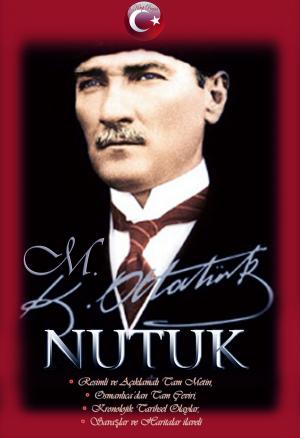| Author: | Irving Bacheller | ISBN: | 9786155564529 |
| Publisher: | eKitap Projesi | Publication: | April 7, 2015 |
| Imprint: | eKitap Projesi | Language: | English |
| Author: | Irving Bacheller |
| ISBN: | 9786155564529 |
| Publisher: | eKitap Projesi |
| Publication: | April 7, 2015 |
| Imprint: | eKitap Projesi |
| Language: | English |
The day that Henry Smix met and embraced Gasoline Power and went up Main Street hand in hand with it is not yet forgotten. It was a hasty marriage, so to speak, and the results of it were truly deplorable. Their little journey produced an effect on the nerves and the remote future history of Bingville. They rushed at a group of citizens who were watching them, scattered it hither and thither, broke down a section of Mrs. Risley's picket fence and ran over a small boy. At the end of their brief misalliance, Gasoline Power seemed to express its opinion of Mr. Smix by hurling him against a telegraph pole and running wild in the park until it cooled its passion in the fountain pool. In the language of Hiram Blenkinsop, the place was badly "smixed up."
Yet Mr. Smix was the object of unmerited criticism. He was like many other men in that quiet village—slow, deliberate, harmless and good-natured. The action of his intellect was not at all like that of a gasoline engine. Between the swiftness of the one and the slowness of the other, there was a wide zone full of possibilities.
The engine had accomplished many things while Mr. Smix's intellect was getting ready to begin to act.
In speaking of this adventure, Hiram Blenkinsop made a wise remark: "My married life learnt me one thing," said he. "If you are thinkin' of hitchin' up a wild horse with a tame one, be careful that the tame one is the stoutest or it will do him no good."
The event had its tragic side and whatever Hiram Blenkinsop and other citizens of questionable taste may have said of it, the historian has no intention of treating it lightly. Mr. Smix and his neighbor's fence could be repaired but not the small boy—Robert Emmet Moran, six years old, the son of the Widow Moran who took in washing.
He was in the nature of a sacrifice to the new god. He became a beloved cripple, known as the Shepherd of the Birds and altogether the most cheerful person in the village. His world was a little room on the second floor of his mother's cottage overlooking the big flower garden of Judge Crooker—his father having been the gardener and coachman of the Judge. There were in this room an old pine bureau, a four post bedstead, an armchair by the window, a small round nickel clock, that sat on the bureau, a rubber tree and a very talkative little old tin soldier of the name of Bloggs who stood erect on a shelf with a gun in his hand and was always looking out of the window. The day of the tin soldier's arrival the boy had named him Mr. Bloggs and discovered his unusual qualities of mind and heart. He was a wise old soldier, it would seem, for he had some sort of answer for each of the many questions of Bob Moran. Indeed, as Bob knew, he had seen and suffered much, having traveled to Europe and back with the Judge's family and been sunk for a year in a frog pond and been dropped in a jug of molasses, but through it all had kept his look of inextinguishable courage.
The day that Henry Smix met and embraced Gasoline Power and went up Main Street hand in hand with it is not yet forgotten. It was a hasty marriage, so to speak, and the results of it were truly deplorable. Their little journey produced an effect on the nerves and the remote future history of Bingville. They rushed at a group of citizens who were watching them, scattered it hither and thither, broke down a section of Mrs. Risley's picket fence and ran over a small boy. At the end of their brief misalliance, Gasoline Power seemed to express its opinion of Mr. Smix by hurling him against a telegraph pole and running wild in the park until it cooled its passion in the fountain pool. In the language of Hiram Blenkinsop, the place was badly "smixed up."
Yet Mr. Smix was the object of unmerited criticism. He was like many other men in that quiet village—slow, deliberate, harmless and good-natured. The action of his intellect was not at all like that of a gasoline engine. Between the swiftness of the one and the slowness of the other, there was a wide zone full of possibilities.
The engine had accomplished many things while Mr. Smix's intellect was getting ready to begin to act.
In speaking of this adventure, Hiram Blenkinsop made a wise remark: "My married life learnt me one thing," said he. "If you are thinkin' of hitchin' up a wild horse with a tame one, be careful that the tame one is the stoutest or it will do him no good."
The event had its tragic side and whatever Hiram Blenkinsop and other citizens of questionable taste may have said of it, the historian has no intention of treating it lightly. Mr. Smix and his neighbor's fence could be repaired but not the small boy—Robert Emmet Moran, six years old, the son of the Widow Moran who took in washing.
He was in the nature of a sacrifice to the new god. He became a beloved cripple, known as the Shepherd of the Birds and altogether the most cheerful person in the village. His world was a little room on the second floor of his mother's cottage overlooking the big flower garden of Judge Crooker—his father having been the gardener and coachman of the Judge. There were in this room an old pine bureau, a four post bedstead, an armchair by the window, a small round nickel clock, that sat on the bureau, a rubber tree and a very talkative little old tin soldier of the name of Bloggs who stood erect on a shelf with a gun in his hand and was always looking out of the window. The day of the tin soldier's arrival the boy had named him Mr. Bloggs and discovered his unusual qualities of mind and heart. He was a wise old soldier, it would seem, for he had some sort of answer for each of the many questions of Bob Moran. Indeed, as Bob knew, he had seen and suffered much, having traveled to Europe and back with the Judge's family and been sunk for a year in a frog pond and been dropped in a jug of molasses, but through it all had kept his look of inextinguishable courage.















